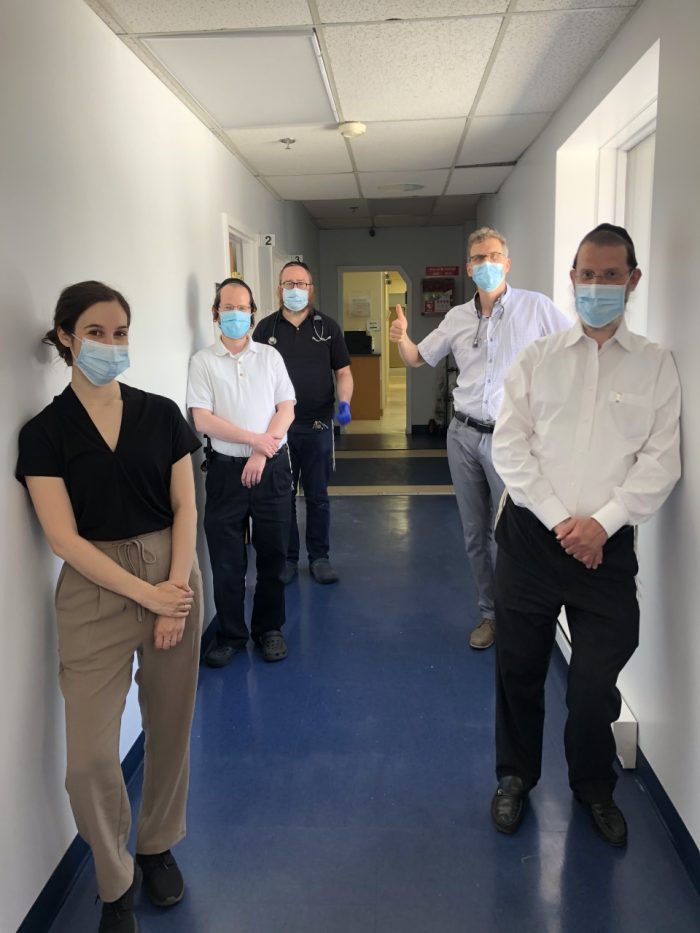
By Lisa Dutton
The bottom line was that the callers were scared and even distraught. What was this new virus that seemed to target the elderly? How do we protect ourselves and our loved ones? I’ve started coughing, do I have the virus?
This was the tenor of the questions from fearful and anxious callers to the Montreal Centre for Health and Care (Refuah V’chesed) COVID-19 hotline. It was late March, early April, and Montrealers realized the novel coronavirus was not contained in far-away places like in Wuhan, China and northern Italy. It had reached our city and was spreading.
The team at the clinic on Avenue du Parc established a COVID-19 helpline to respond to the crisis within the community and had recruited 19 McGill medical students to help. Medical students from all four years of McGill Undergraduate Medical Education Program (UGME) volunteered to answer questions, reassure, explain, console and, when appropriate, transfer calls from those with COVID-19 like symptoms directly to a physician. The student participation was part of ELEC200, a non-credit McGill UGME course that harnessed medical students’ desire to help during the public health crisis.
When the pandemic struck, Faculties of Medicine across Canada, including McGill, released medical students from their clinical duties to ensure their health and safety. With the teaching hospitals preparing for an influx of patients with COVID-19, the health care teams could no longer focus on teaching our future physicians. Aliya Szpindel, a third-year medical student, was part of the group of students responding to calls to the clinic’s COVID-19 helpline. Aliya says, “Supporting the patients at the clinic was a great way to help by providing people with advice and guidance during the crisis.” During three or four hour shifts, students fielded calls from worried patients 11 hours a day, six days a week. Aliya managed all student volunteers’ scheduling and acted as the primary liaison between the clinic and students.
Aliya notes that as the crisis was evolving quickly, so too were public health directives. “One of the most challenging things was keeping up with all public health directives, which were changing daily, and the medical student volunteers had to stay up-to-date so we could respond to questions properly.”
Dr. Peter Steinmetz, Medical Director of the Montreal Centre for Health and Care, recruited Aliya to set up and staff the helpline. He was most impressed by her management skills. “Aliya took the lead on the ELEC200 project at our Groupe de médecine familiale acting as the coordinator between myself and the students. She managed her fellow students, took the initiative in obtaining and summarizing incoming and rapidly changing information, using excellent communication skills, and showed superior organizational skills.”
When the situation started to stabilize, the McGill medical students took the time to call the clinic’s most vulnerable patients to do a health check. “This was extremely rewarding,” says Aliya. “Many people, particularly the elderly, were very isolated, and they were grateful that we reached out. They appreciated that the clinic was looking out for them during this distressing time.”
“I must say I have been very impressed with each of the McGill medical students who supported the clinic,” says Dr. Steinmetz. “They should be proud of their accomplishments.”
June 29 2020
